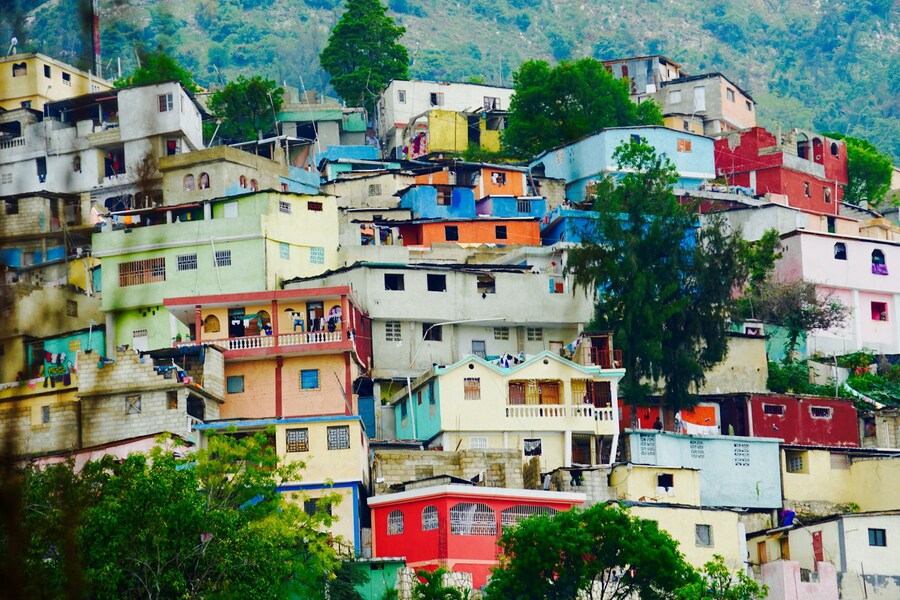The latest travel caution was issued citing concerns over "abductions, criminal activity, acts of terrorism, civil disturbances, and inadequate medical facilities."
Why is Haiti still under the highest U.S. travel warning?
 Source: Heather Suggitt/Unsplash
Source: Heather Suggitt/Unsplash
The United States has once again reinforced its cautionary stance, reiterating a travel advisory that continues to strongly discourage American citizens from journeying to Haiti. This ongoing alert underscores persistent concerns regarding safety and stability within the nation.
Last week, the U.S. Department of State (DOS) renewed its Level 4 warning for the Caribbean nation, citing "kidnapping, crime, terrorist activity, civil unrest, and limited health care" as critical factors. The latest reissuance specifically incorporated terrorism as an explicit threat, signaling an evolving risk landscape for potential visitors. This emphasizes the gravity of the situation and the comprehensive nature of the dangers outlined.
"Violent crime is rampant in Haiti, particularly within Port-au-Prince, where the proliferation of gang, organized crime, and terrorist activities has fueled widespread violence, abductions, and sexual assault. The intensification of skirmishes between armed factions has led to an increase in sporadic gunfire incidents. There exists a substantial risk of being struck by stray bullets, even for individuals not directly implicated in the conflict," the State Department advisory explicitly warns. It continues, "There's a risk of terrorist violence, including assaults and other aggressive gang behavior in Haiti. Designated terrorist organizations, disguised as gangs, are present within Haiti." This detailed warning paints a grim picture of the security environment, highlighting the pervasive and unpredictable nature of the dangers. When evaluating travel options, concerns like airport parking safety become paramount, especially when facing such advisories.
Presently, Haiti stands as the sole nation in the Caribbean region to carry a Level 4 travel advisory, which unequivocally translates to a United States recommendation for its citizens to "Do Not Travel" to the country. This stark classification distinguishes Haiti from all its regional neighbors, underscoring the unique and severe challenges it faces. This extreme warning level reflects an acute assessment of risk by the U.S. government.

Source: Nick Fewings/Unsplash
The State Department's system of travel advisories serves to equip American travelers with essential information regarding potential risks when planning international trips. These advisories are categorized into 4 distinct levels of caution: Level 1 (suggesting travelers exercise normal precautions), Level 2 (indicating the need for increased caution), Level 3 (advising reconsideration of travel plans), and the most severe, Level 4 (strongly recommending against all travel). This tiered structure provides a clear framework for assessing global travel risks.
Regarding Haiti, even those travelers who contemplate disregarding the official advisory and proceeding with a visit may encounter significant practical obstacles. While Reuters reported in December that the country had reopened the Port-au-Prince airport, Aeroport International Toussaint Louverture (PAP), the Federal Aviation Administration (FAA) continues to enforce a ban on all flights to this destination originating from the United States. This makes it incredibly challenging to access the country by air, even if one were inclined to do so. If you have an existing travel plan, you might need to cancel airport parking reservation if your flight is affected.
"The FAA maintains that there are ongoing small arms fire risks to U.S. civil aviation operating into, out of, within, or over specific areas of Haitian territory and airspace. Armed gangs continue to exert control over substantial portions of the capital, Port-au-Prince, and have, on multiple occasions, employed small arms fire against civilian aircraft, helicopters, airports, and related infrastructure, resulting in damage to several aircraft and injury to an aircrew member," the FAA stated. "Consequently, the FAA upholds its prohibition on U.S. civil aviation operations... in designated sections of Haiti's airspace where armed gangs maintain territorial control and their activities remain prevalent." This detailed explanation from the FAA underscores the direct threat to air travel, justifying their continued ban and highlighting the severe ground-level instability.
Cruise ship itineraries to the island have also been significantly affected by the persistent instability. For example, Royal Caribbean had to cancel scheduled stops earlier this year to its privately operated beach resort in Labadee, situated on Haiti's northern coast. This demonstrates how the volatile situation extends beyond the capital, impacting even remote tourist-centric areas. When considering your travel logistics, exploring airport parking alternatives through services like ParkingNearAirports.io can be beneficial for peace of mind and flexibility.






